Introduction
On December 7, 2024, Ghanaians voted to elect 276 Members of Parliament (MPs) and a new President as President Nana Akufo-Addo ended his constitutionally limited second term in office. The Electoral Commission (EC) of Ghana in September 2024 approved 13 presidential aspirants for the 2024 elections. However, the two main presidential contenders for the 2024 general elections were former Vice President, Dr. Mahamadu Bawumia of the New Patriotic Party (NPP) and Mr. John Dramani Mahama of the National Democratic Congress (NDC), who was a former president from 2012 to 2016. The 2024 elections marked Ghana’s fifth presidential succession since the return to democratic multiparty politics in 1992, raising Ghana’s image of having predictable rule-based presidential transitions. The past political transitions between the two main rival political parties, NPP and NDC, have strengthened the country’s burgeoning democratic culture of power transition between incumbent governments and opposition parties.
While the 2024 elections presented an opportunity for Ghana to further consolidate its burgeoning democracy, there were several issues that required proactive responses from the government, the EC, and security agencies. Among them were the issues of mistrust of key state institutions like the EC, police and Judiciary. Others included issues of misinformation, disinformation, hate speeches and intemperate languages; political vigilantism; manipulation of unresolved conflicts and disagreement over the voter’s register. However, an issue that consistently emerges during every election period but given limited attention in public discourse is the issue of maintaining border security along the country’s international boundaries with Togo (789km) to the East, Cote d’Ivoire (661km) to the West and Burkina Faso (556km) to the North. The issue remains sensitive and highly polarizing due to its deep ties to national security, economic policy and the cultural identity of border communities. Nevertheless, it is instructive to note that the peaceful conduct of the 2024 elections could not be safeguarded without robust measures to maintain border security. In that regard, this article explores the land border security threats to the 2024 general elections and how the border security agencies led by the Ghana Immigration Service (GIS) ensured effective border security management and the challenges encountered. The article concludes with some options for consideration in future elections to ensure effective control and management of Ghana’s international land borders.
Border Security and Elections in Ghana
A key characteristic of any state is the presence of a well-defined boundary. The Ghana Boundary Commission indicates that a well-defined boundary helps in maintaining effective control of the borders as it promotes good governance, good neighborliness, political stability, human rights, regional integration, and development. Ghana has land, maritime and air boundaries, but during elections, the land borders (see figure 1) are mainly the focus area for maintaining border security.
Figure 1: Map showing the international borders of Ghana
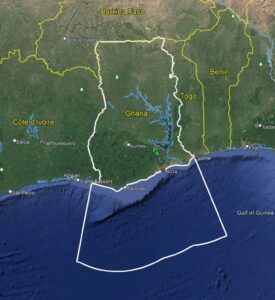
Source: Ghana Boundary Commission
As shown in figure 1, Ghana borders Côte D’Ivoire to the west at a distance of 668km, Togo to the east at 877km, Burkina Faso to the north at 549km and to the south by the Gulf of Guinea. The demarcations are through concrete pillars and wire mesh, and the space between the pillars is called “beats”. The three countries that surround Ghana are all Francophone countries. The Togo border has more vehicular and human traffic than the borders shared with Burkina Faso and Côte D’Ivoire. This could be explained by the fact that the border is closer to the administrative capital of Togo (Lome) where there is much activity unlike the Côte D’ivoire and the Burkina Faso where there is a relative distance from their capital cities to their borders. Also, it serves as the main route to the countries in the eastern corridor that enter the country by road.
The Volta region, which borders Togo, is considered the stronghold of the NDC. Due to political history and cultural linkages, it is argued that the supporters of the NDC might not all be from the Volta region but also neighbouring Togo. As a result, the Ghana-Togo border is perceived as an important factor in the victory or defeat of the two main political parties. For instance, in the 2012 elections disputed by the NPP, it was alleged that the same names were on the electoral registers of both Ghana and Togo. The implication was that Togolese participated in Ghana’s elections and voted for its opponent, the NDC, which somehow contributed to the NPP’s defeat in the elections. The NDC, on the other hand, pointed to the closure of the Ghana-Togo border, which denied some of its supporters the opportunity to vote, as one of the reasons for losing the elections in the first round in 2008. The importance attached to this border by the NDC is also evident in its visibility in these borderlands through their posters and flags, amongst others, and by actively campaigning in these borderlands, including the Togolese portions and encouraging people to partake in the elections.
Since 1992, the border management agencies in Ghana have maintained border security at all the border towns during presidential and parliamentary elections. In almost all the elections from 2000, 2004, 2008, 2012, 2016, 2020 and 2024, border security issues have emerged during voter registration exercises and the voting period. During the 2008 elections, concerns over the illegal registration of foreigners or non-Ghanaians in border communities during voter registration led the ruling NPP government to close the border with Togo during the general elections on 7 December. The border was also closed on Friday, 26th December 2008, before the presidential run-off elections on Sunday, 28th December 2008, between the ruling NPP and NDC. At the time, Ghana’s national security secretariat argued that the borders with Côte D’Ivoire, Togo and Burkina Faso were closed to address any security concerns that may arise. However, some chiefs from the Volta region opposed the decision and criticized President John Agyekum Kufuor’s government for refusing to consult them before closing the borders. Similarly, on Friday, 6 December 2024, before the 7 December general elections, the Ministry of Interior ordered the temporary closure of all land borders across Ghana. The decision was to safeguard the integrity of the elections. The directive commenced on Friday, 6 December, and ended on Sunday, 8 December 2024. However, the then opposition party (NDC), accused the ruling NPP government of closing land borders to prevent Ghanaians living in border communities from coming home to vote.
Relatedly, in 2016, there were several debates in the build-up to the general elections. The NPP, then in the opposition, claimed that 76,000 individuals were registered on both the Togolese and the Ghanaian voters’ registers, casting doubt on the citizenship status of voters who crossed the border from Togo to vote in Ghana. Moreover, in 2020, at the Aflao border in the Ketu South district of the Volta region, the NPP accused the NDC of busing Togolese nationals to partake in the 2020 voter registration exercise to vote in the general elections on 7 December. This led to physical confrontations between the two parties at the Aflao border. However, the situation disenfranchised some genuine persons eligible to vote during general elections.
During the 2024 voter registration and exhibition exercise conducted by the EC, personnel from the border management agencies such as the Ghana Police Service (GPS), the Ghana Immigration Service (GIS), the National Intelligence Bureau (NIB), Ghana National Fire Service (GNFS) among others were deployed to various polling stations to maintain peace, security and stability within the border communities. These communities included Aflao in the Volta region, Paga in the Upper East region and Hamile in the Upper West. In the same vein, before, during and after Ghana’s 2024 general elections, Immigration officers were deployed across all the land borders in Ghana for intelligence gathering, patrolling and polling station duties within the border communities. The deployed Immigration Officers encountered countless challenges in the performance of their duties. Based on interviews with some Immigration Officers in February/March 2025, the notable challenges cited were transportation to and from polling centres, lack of vehicles for patrols, limited residential accommodation and unequal provision of ration.
Border Security Threats to Ghana’s 2024 General Elections
Several challenges along Ghana’s land borders threatened the peaceful conduct of the 2024 elections. The notable ones are violent extremism/terrorism, irregular migration, porosity of the borders, and smuggling/proliferation of small arms and light weapons at various borders of Ghana.
First, violent extremism (VE) and potential terrorist attacks was identified as a major security threat at Ghana’s northern borders with Burkina Faso. Since 2015, Burkina Faso has recorded countless terrorist attacks with the potential to spill over to Ghana. Togo and Benin have already experienced terrorist attacks in their northern territories. Although Ghana is yet to experience any direct terrorist attacks, the worsening humanitarian crises in Burkina Faso has led to the influx of over 1,000 Burkinabes into the border communities in the northern part of Ghana. In the lead up to the December 7 elections, there were concerns that the threat of VE could affect the elections in several ways. This includes instilling fear in the borderland population, leading to anxiety around the elections and causing voter apathy and low turnout, diversion of resources and attention of the security agencies from important electoral processes and potential trafficking of arms into the country.
Second, the porosity of the land borders and the prevalence of unapproved routes threatened Ghana’s 2024 general elections. The Ghana Immigration Service has identified over 250 unapproved routes in Ghana, which have been used for criminal activities such as smuggling, drug trafficking, human trafficking, embarkation and disembarkation for irregular migrants and arms trafficking. The use of unapproved routes by smugglers, traffickers, and other criminal elements poses challenges to national security, especially given the increase in activities of violent extremist organisations operating in neighbouring countries. Without effective border security and patrols during the election, the unapproved routes could be used to smuggle arms into the country to foment violence by political actors. This situation explains why the immediate past Controller-General of the Ghana Immigration (CGI), Kwame Asuah Takyi, on Monday, 15 July 2024, instructed all his commanders to strengthen security at the country’s borders including patrols at all unapproved routes to prevent illegal entries and exits into the country.
Third, the smuggling of small arms and light weapons was a major concern during the 2024 election. There were fears that transnational criminals and some political actors could smuggle arms and weapons into Ghana and use them to cause mayhem. The increasing violent extremism and terrorist attacks in Mali, Niger and Burkina Faso have contributed to the illegal trade of weapons in the region including Ghana. Besides, in the lead up to the elections, some notable arrests were made along the borders where some individuals attempted to smuggle weapons into the country. For example, on 15 July 2024, a Chinese national and his Ghanaian counterpart who wanted to smuggle two pump-action guns were apprehended at the Paga border in the Upper East region of Ghana. Similarly, on 29 April 2024, an American Major who wanted to smuggle 11 small arms and light weapons was apprehended at the Tema port. While these arrests were not linked to the elections, it was nevertheless prudent to enhance border security in order to minimize the smuggling of arms into the country.
The Roles of the Border Security Agencies
In Ghana, the key mandated agencies with a role in border security control and managements are the Ghana Immigration Service (GIS), the Ghana Revenue Authority-Customs Division (GRA-CD), the Ghana Police Service (GPS), the Ghana Armed Forces (GAF) and the National Intelligence Bureau (NIB). Others include the National Signal Bureau (NSB), the Narcotic Control Commission (NACOC), the Ghana Boundary Commission, the Port Health Authority and the Agriculture Quarantine Service. Aside their constitutionally mandated roles, these agencies play different election related roles along Ghana’s land borders before, during and after elections to ensure its peaceful outcome. Some of these agencies like the GPS, GIS, NIB, and GAF work together as members of the National Election Security Task Force which is responsible for the provision of election security during presidential and parliamentary elections. Three of the significant roles of the border security agencies during the 2024 elections are highlighted as follows:
Figure 2: Border security personal at the Elubo land border
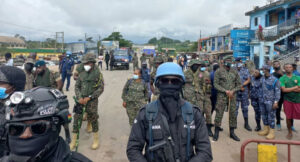
Source: ghanamps.com
The first prominent role is the manning of polling stations in the border communities during voter registration, voter exhibition exercise and voting processes. During the 2024 voter registration and exhibition exercise, personnel from border security institutions including the GPS, GIS, and GRA-CD were deployed to protect the various polling stations within the border communities. In the voter exhibition exercise conducted by the EC in August 2024 for instance, an interview with border management officials showed that about 121 personnel were deployed within Aflao, 131 within Paga and 15 across Hamile Sectors to ensure safety and security at the various polling centres. During the voting on December 7, 2024, personnel were deployed to provide security at polling stations along the border regions to protect voters, electoral material and officers as well as the ballot boxes. They also ensured that the queue of voters was orderly, stood at the end of queues at 5pm to ensure that no person joined them after the closing time and carried out the lawful instructions of the presiding or returning officer of the Electoral Commission. More significantly, personnel from border security institutions also ensured the safe counting of results at the polling/collation centres and worked day and night throughout the period to ensure that peace was preserved in the border communities.
The second role played by the border security institutions is the provision of public education on peaceful elections, security arrangements and voting process in the border towns to compliment the work of the EC, the National Commission on Civil Education (NCCE) and Civil Society Organisations (CSOs). Border security agencies at various border towns in Ghana have since 1992 played this important role. Before and after the 2024 elections, three (3) public education sessions on elections were organised at Paga, Aflao and Hamile respectively according to interviews with border management officials in these regions. During these sessions, the election security arrangements and voting process were communicated to the populace including the roles of the population in ensuring peaceful elections and sharing suspicious information with the security agencies for prompt response. The people were also made aware of election-related offences and public order regulations. Aside this, the GIS held press conferences periodically with the GPS which heads the National Election Security Taskforce to review the security situation and to outline specific security threats and measures for the elections. In addition, relevant information was repeatedly conveyed to the political parties and the general public, such as the agencies and the number of security personnel deployed on polling day. These public engagements helped to promotes trust between the border security officials and the borderland population and helped to minimize the suspicions and friction among the security agencies, media, and political parties.
The third important role of the border security agencies was maintaining security at the borders and ensuring the safety of lives and properties before, during and after the elections using Joint Mobile Teams (JMTs). At Aflao, Hamile and Paga borders, there were JMTs made up of various agencies who conducted day and night patrols along the unapproved border routes to prevent any infiltration of violent extremist militants and criminal elements. They maintained traffic checkpoints along highways leading from border areas and conducted snap checks and anti-smuggling operations. Leveraging community engagements, the JMTs gathered valuable intelligence to combat migration-related crimes and to build strong relationships with local stakeholders to prevent the involvement of border communities in illegal crossings. As part of these efforts, the JMTs detected and apprehended irregular migrants and smugglers at or near land borders. For example, Ghana Immigration Officers at the Paga Border Post arrested a Chinese national and his Ghanaian accomplices on 15 July 2024 as they attempted to smuggle firearms into the country.
Challenges of Maintaining Border Security During the 2024 Elections
Border security agencies encountered numerous challenges throughout the electoral phases in the performance of their election roles. One of these challenges is the inadequate funding to pay the ration of border security personnel due to limited budgetary allocations for election-related duties. As indicated by an official interviewed, “rushing for border security is not budgeted for or is sometimes insufficient”. During the 2024 voter exhibition exercise from 20 to 27 August 2024, the border security officials deployed at various border towns were not considered for the ration. This situation affected the morale and commitment of officers deployed for election related duties at various polling stations in border towns.
Another challenge was the inadequate border security personnel for election deployment. As a result of the inadequacy of personnel, not all the polling stations within the border communities had the presence of border security officers. For example, during the 2024 voter registration exercise, out of 292 polling stations, only 121 security officials were deployed within the Aflao area of the Volta region, according to an interview with border management officials. The deployment did not cover all the polling centres, jeopardizing the election security provision in those areas.
Other notable challenges encountered by border security officials include, but are not limited to, logistic challenges, poor road infrastructures, poor communication network and inadequate security checkpoints and roadblocks. For example, within the Elubo sector of the Ghana Immigration Service, only one Inland barrier or (Samia) security checkpoint is available. The implication is that transnational criminals, such as violent extremists and traffickers, could use the unapproved routes within the jurisdiction to arrive at their various destinations without going through border formalities. In addition, the inconsistent presence of military and police officers at some of the border areas was another challenge. At the Atuna border in the Bono region for instance, there was no/limited military presence in the area which affected the operations of the Joint Mobile Teams (JMTs) for patrol and checkpoint duties. Moreover, the unwillingness of border residents to report illegal migrants entering Ghana through unapproved routes due to personal interest and safety considerations was another challenge. The lack of information sharing affected intelligence gathering efforts at especially the remote border communities during the elections.
Looking into Future Elections
Maintaining border security in the context of elections is crucial in ensuring a fair, transparent, and peaceful electoral process. While Ghana has an impeccable record of a relatively stable democratic practices, the potential for electoral violence, voter manipulation, and cross-border interferences made it necessary to maintain robust border security during the 2024 elections. The crucial roles played by the border agencies led by the GIS along the land borders with Togo, Burkina Faso, and Côte d’Ivoire was instrumental to the successful outcome of the 2024 elections. Apart from preventing irregular migration, voter registration of foreigners, and infiltration of terrorist groups, their roles arguably helped to minimize and mitigate the risks of smuggling and trafficking of weapons which could have undermined the integrity of the electoral process. Based on the challenges encountered during the 2024 elections, it is important for the Government and border security agencies to take effective measures to safeguard the land borders in future elections. In that regard, the government is encouraged to consider allocating adequate funds to border security agencies for election duties and deploy enough security personnel to security the borders during elections. Furthermore, the border security agencies are encouraged to establish comprehensive remote border area surveillance programmes and utilize technologies such as drones to gather intelligence on violent extremists and other transnational security threats to protect future elections. It is also imperative for government to enhance the technical and operational capacity of border security officials for the effective performance of their election duties, and to foster trust and cooperation with border communities to address border security threats.

Disclaimer: The views expressed in this publication are those of the author and not necessarily those of WANEP. While every attempt has been made to ensure that the information published is accurate, no responsibility or liability is accepted for any loss, damage or disruptions caused by errors or omissions whether such errors or omissions result from negligence, or any other cause.
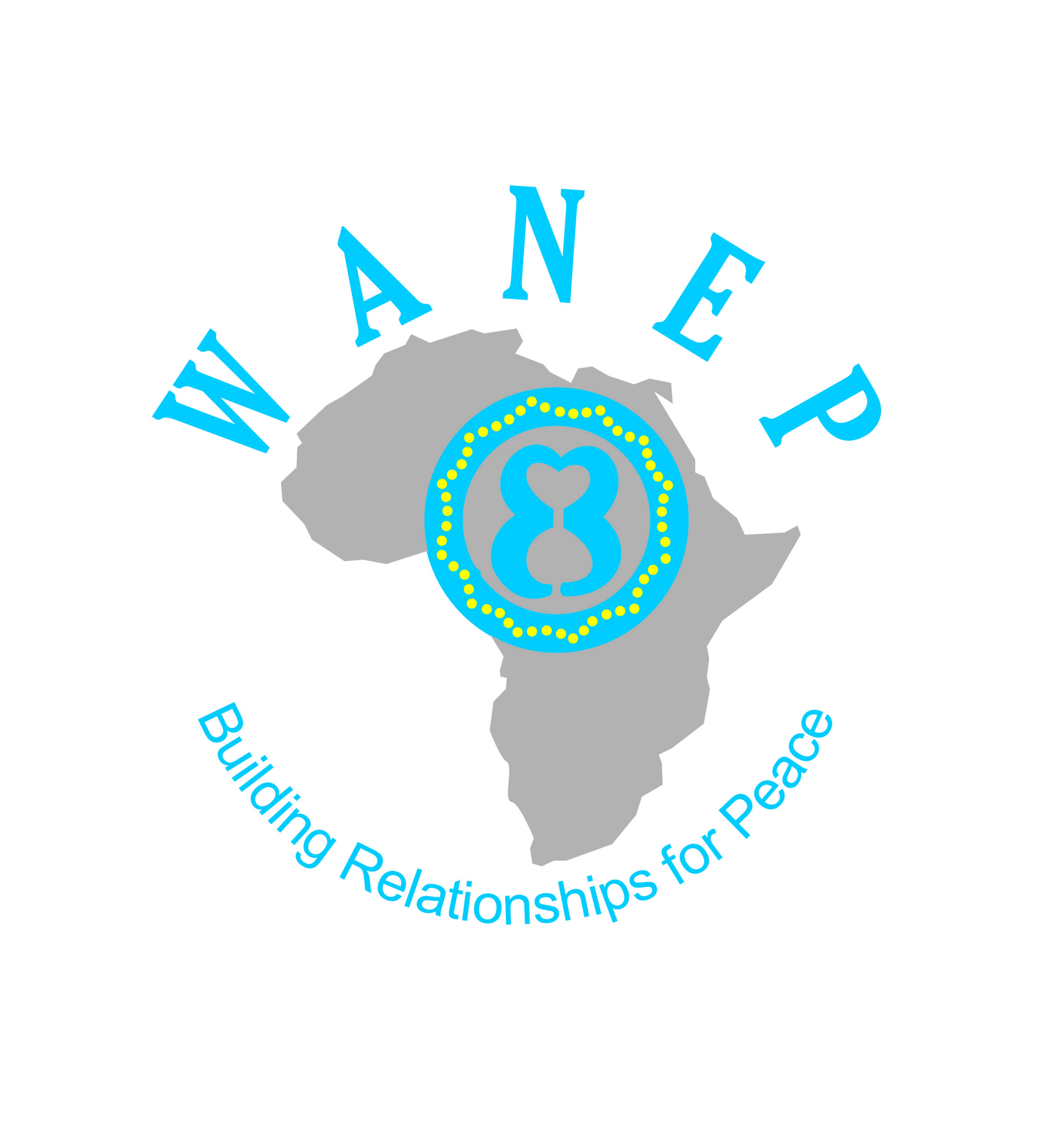
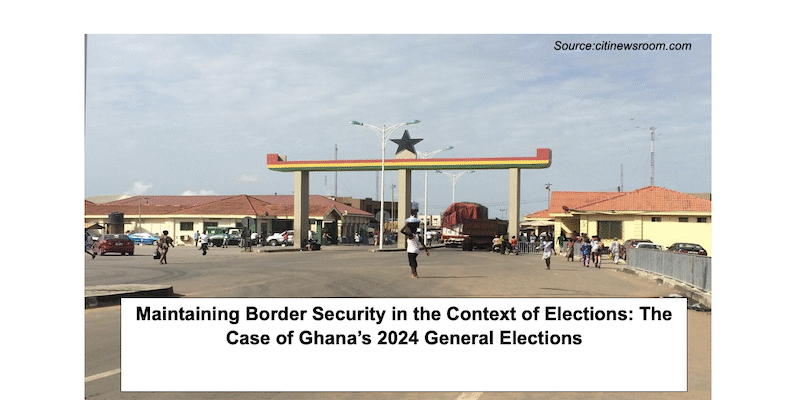

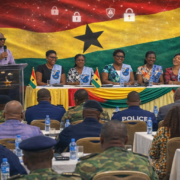
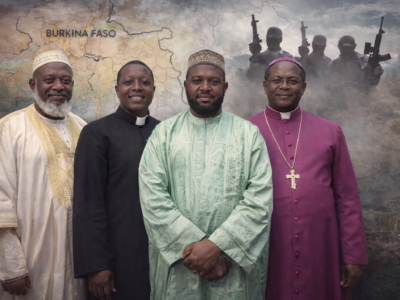


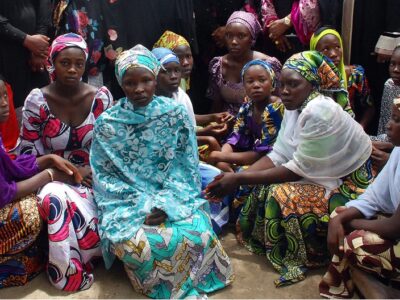

Comments